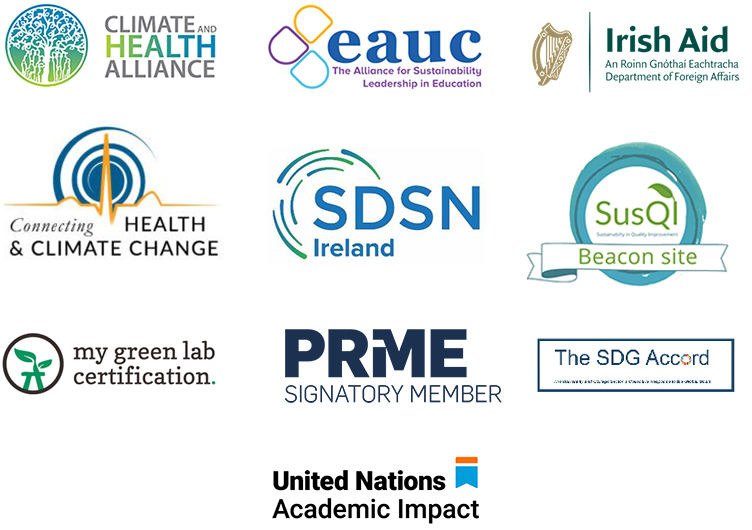Partnership and collaboration
RCSI is committed to collaborating with governmental and non-governmental organisations to drive policy and progress toward achieving the United Nations' Sustainable Development Goals (SDGs).
Through strategic partnerships and active involvement, RCSI provides input into policy development and serves as an example of best practice in sustainability and health-focused initiatives.
These efforts contribute to implementing impactful solutions and strategies that promote sustainable development, reinforcing RCSI’s role as a leader in SDG engagement and advocacy.
Examples include:
- Partnership with COSECSA: For the past 25 years, RCSI’s collaboration with the College of Surgeons of East, Central and Southern Africa (COSECSA) has improved surgical education and standards across East, Central, and Southern Africa. This partnership supports SDG 3 (Good Health and Well-being), SDG 4 (Quality Education), and SDG 10 (Reduced Inequalities) by addressing the acute shortage of surgical care providers through training and examination programmes.
- Roadmap for sustainability in surgery: RCSI published a report setting out a roadmap for reducing the carbon footprint of surgery in Ireland, while at the same time ensuring delivery of safe and effective surgical care. This initiative aligns with SDG 13 (Climate Action) and involves measures such as sustainable surgical practices and the use of environmentally friendly anaesthetics.
- European University Association (EUA) contribution: Professor Debbi Stanistreet, based in RCSI’s School of Population Health, contributed to the European University Association’s roadmap on supporting the European Commission’s Green Deal. This roadmap serves as a model for universities to impact climate neutrality and sustainability, showcasing RCSI's commitment to SDG-focused international collaboration and policy guidance.
- Community and student volunteering programmes: Through partnerships with NGOs like the Christina Noble Children’s Foundation and the Olive Branch for Children, RCSI facilitates student and staff volunteer work. This supports SDG 17 (Partnerships for the Goals) by fostering community engagement and providing students with experiences that enhance their understanding of social responsibility and global health challenges.
- Public health advisory roles: RCSI faculty remain highly engaged in advising the Irish government and international health bodies, contributing valuable expertise across various public health domains. Recent involvement includes significant work by Professor Mary Cannon, who provides critical insights on youth mental health, influencing policy and awareness campaigns. This extends RCSI's advisory roles beyond the COVID-19 era into areas such as mental health advocacy, sustainable healthcare practices, and health equity. These roles encompass policy development, strategic oversight, and evidence-based guidance, reinforcing RCSI’s commitment to SDG 3 (Good Health and Well-being) and SDG 17 (Partnerships for the Goals) through strategic collaborations and partnerships with governmental and global health organisations.
- Policy development: RCSI regularly provides input into national government SDG policy development. For example, various RCSI initiatives feature throughout ESD to 2030: First Progress Report published by the Government of Ireland in November 2023 – see page 52 for information on how REACH RCSI developed a 'UN SDG Engaged Learning' project, which invited TY students from the university’s linked second-level DEIS schools to explore the SDGs together with RCSI students.
- DFHERIS Climate and Sustainability Champions group: Abi Kelly, Director of International Engagement and External Relations, represents RCSI on the Department of Further and Higher Education, Research, Innovation and Science Climate and Sustainability Champions group. This initiative aims to strengthen climate action and promote sustainability within Ireland’s higher and further education sector. The group forms part of the government’s comprehensive strategy to advance climate-focused objectives, including enhancing education, developing green skills, and decarbonising educational institutions.
Our sustainability partners

